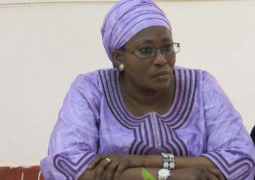Momodou Sabally
Fulladu Publishers, 2012
By now I am sure no one in their right minds would still be asking if there is Gambian literature. If the questions made sense 50, 40 years ago before Peters or Ndaanan, then it may have been forgiven because then hardly any Gambians published any literature. It was only the output of our griots and bards and minstrels, which stood the ground for Gambian literature.
Thankfully, so much water has passed under the bridge since those days, as now hardly a week passes by without a Gambian launching a book or so. Last week, Momoodu Sabally, trained economist and essayist par excellence and motivational writer, outdoored his new anthology of over 50 poems and I am thrilled by this gem.
Firstly, allow me to warn the reader that the title can be misleading for only a few of the poems are in fact love or romantic. Indeed, the poems cover the widest gamut of themes as possibly can: hatred, jealousy, the joy of books, patriotic paeans and odes to the motherland, The Gambia, obituaries and tributes to departed loved ones and so on. The sheer variety of the topics that the poet seeks to address is in itself, a major plus of this brand new collection. Second, the richness of diction is also palpable. Sabally writes with passion for the use of words, and sounds. The alliteration, rhyme as in the poem ‘ A year of Bliss’ (page 15) ‘how true this dream/It’s a joyous stream/Filling me with steam/My face a radiant beam’ is indeed wonderful. The other poems also ring with the sound of assonance, onomatopoeia, and of course the powerful imagery.
Reading Sabally’s poems the perceptive reader sees the traces of the great Gambian writers like Tijan Sallah ( as in Sabally’s poem ‘Breton Woods’ p.21) which reveals the great concern he has for the quinine prescription they always have for African countries under economic distress. Many of the poems are also contemporaneous; such as ‘Song for Obama (p.46) and ‘Steve Jobs’, a tribute to the late cancer ravaged Apple founder and CEO.
This beautiful work has adequately revealed the vast potentials that inhere in Sabally as a poet of repute. The collection is worthy of being read and digested for in these lines and metaphors, lies true and noble messages. With books like this one, we can be hopeful and proud of the future of Gambian writings because we have the raw talent, the inspirations and therefore all what is left is to publish, publish and publish.
I strongly recommend the book to the general reading public.
Available at Timbooktoo, tel 4494345.


